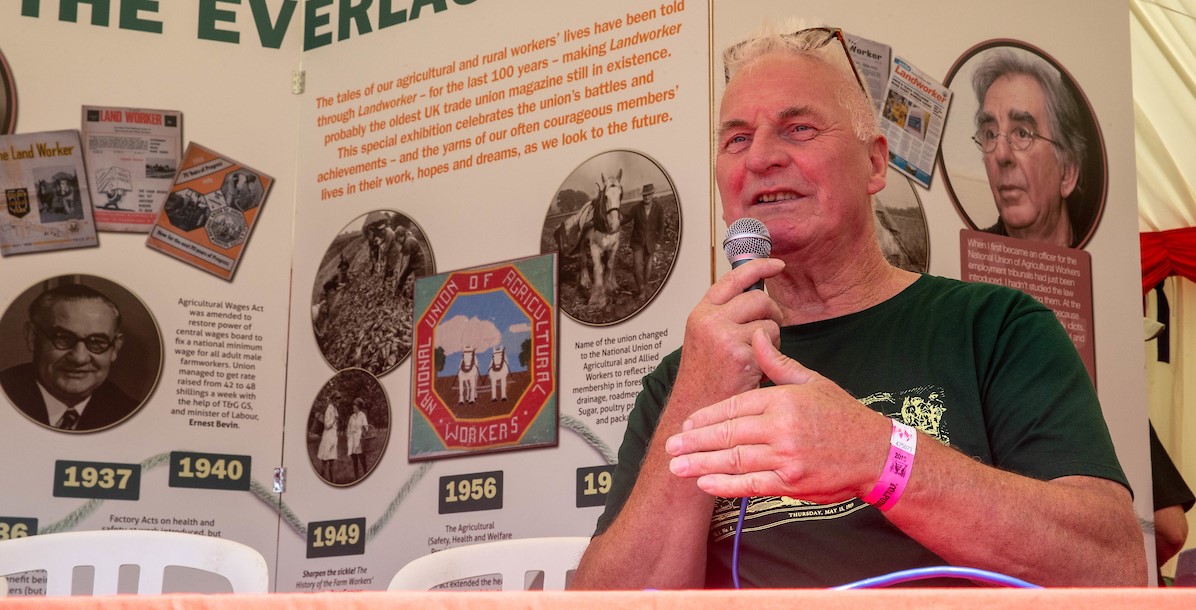Rural workers will suffer
A renewed call for better pay and conditions, as well as better health and safety standards for farmworkers was made this month by Unite executive council member Ivan Monckton, who represents agricultural workers in the union.
Speaking on BBC Radio 4’s programme Farming Today on July 13, Monckton criticised chancellor George Osborne’s latest budget, saying the national minimum wage hike will do nothing to help farmworkers.
“[Osborne’s new national minimum wage] only comes in at 25 [years of age],” he said. “The vast numbers of people who work in the summer are going to be under the age of 25.
Even for those over 25, Monckton argued, the budget has left farmworkers out in the cold.
“Unfortunately, if you take account of the in-work benefits that are going to be cut, it’s actually going to mean a decrease in the income of many, many people. Certainly rural workers are going to suffer overall.”
Monkton condemned the Country Land and Business Association’s (CLA) claim that the hike in the minimum wage would be harmful to farm and landowners, whose profit margins, they say, are already tight.
“The CLA have been coming out with the same story for the last 40 years,” Monckton told Farming Today.
“It’s always the same from the CLA and the farmers, that anything that happens that improves the lot, even marginally, of rural workers is going to lead to the loss of business, the collapse of profits. It’s all the same story.”
As UNITElive has previously reported, farming has persistently remained the most dangerous industry in the UK. Thirty-three workers were killed on farms in England, Scotland and Wales in the year leading to April – a trend that Monckton said could be reversed if employers cooperated with workers.
“Many years ago there was a lot of work done on the concept of roving health and safety representatives,” he said.
“All of the information that has been gathered by the HSE and by our union is that roving health and safety reps actually do make a difference. But it’s not something that the National Famers Union are particularly keen on.”
Evidence from previous roving health and safety rep schemes funded by the HSE showed that they made a big difference, Monckton noted.
“But the money dried up and the NFU weren’t going to pay, there was no way that the farmworkers’ union could pay, so the whole thing collapsed,” he said.
“We need some sort of system whereby both sides of the industry are working together – not just at national level but actually on the farms in the countryside to try and do something about these appalling figures.”
Monkton added that the farming industry, which is now predominately run by older workers, faces a future workforce shortage if pay and conditions don’t improve.
“How are you going to get young people to actually decide to move into farming as a career, when they’re [only] an employee? If I was 18 or 19 again, I wouldn’t even entertain the idea.”
Listen to the full interview here.
 Like
Like Follow
Follow


